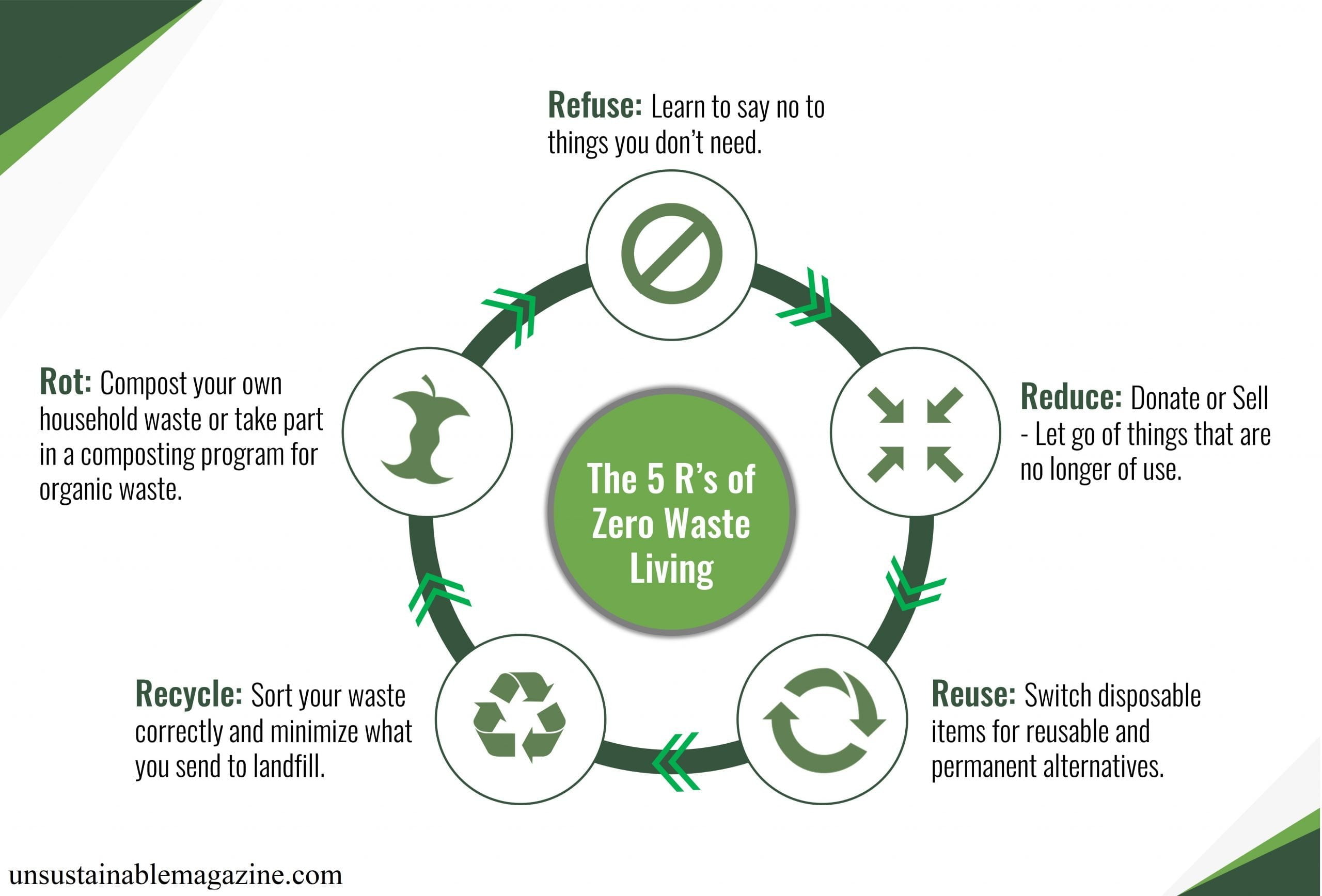
Sustainable Living: Zero-Waste Home Practices
Embracing a zero-waste lifestyle at home is not only environmentally conscious but also contributes to a more sustainable future. From mindful consumption to waste reduction strategies, let’s explore practical and achievable zero-waste home practices that can be integrated into your daily routines.
Mindful Consumption: The Foundation of Zero-Waste Living
The journey towards a zero-waste home begins with mindful consumption. Evaluate your purchasing habits, opting for products with minimal or compostable packaging. Prioritize quality over quantity, choosing items that serve multiple purposes and have a longer lifespan. Being mindful of what and how much you consume is the foundational step toward reducing waste.
Composting: Transforming Kitchen Scraps into Nutrient-Rich Soil
Composting is a powerful tool in the zero-waste toolkit, especially in the kitchen. Instead of sending food scraps to the landfill, create a composting system. Utilize a compost bin or set up a backyard compost pile to turn kitchen waste, such as fruit and vegetable peels, into nutrient-rich compost. This not only diverts organic waste from landfills but also enriches the soil for future plant growth.
Reusable Alternatives: Minimizing Single-Use Items
Transitioning to reusable alternatives is a significant aspect of zero-waste living. Replace single-use items with their reusable counterparts, such as stainless steel or glass containers instead of disposable plastic ones. Invest in reusable shopping bags, water bottles, and coffee cups to reduce the reliance on disposable products, minimizing waste in everyday activities.
Bulk Shopping: Reducing Packaging Waste
Opting for bulk shopping is an effective way to cut down on packaging waste. Bring your reusable containers to bulk stores or utilize provided reusable bags to purchase items like grains, legumes, and snacks in bulk. This not only reduces single-use packaging but also allows you to buy only the quantity you need, minimizing food waste.
Upcycling and Repurposing: Giving New Life to Old Items
Embrace the practice of upcycling and repurposing to breathe new life into old or unused items. Get creative by turning glass jars into storage containers, transforming worn-out clothing into reusable bags, or repurposing furniture instead of discarding it. Upcycling not only reduces waste but also adds a personalized and unique touch to your home.
DIY Cleaning Products: Eco-Friendly Cleaning Solutions
Create your own cleaning products using simple and eco-friendly ingredients. DIY cleaning solutions, often made with ingredients like vinegar, baking soda, and essential oils, are not only effective but also reduce the need for store-bought cleaning products that often come in plastic packaging. This zero-waste approach contributes to a healthier home environment.
Cloth Diapers and Menstrual Products: Sustainable Choices
For households with babies or menstruating individuals, making sustainable choices in diapering and menstrual care is crucial. Cloth diapers are reusable and can significantly reduce diaper-related waste, while using menstrual cups or cloth pads instead of disposable options minimizes monthly waste. These choices contribute to a substantial reduction in household waste over time.
Zero-Waste Events and Celebrations: Mindful Festivities
Extend zero-waste practices to events and celebrations. Plan gatherings with minimal waste by using reusable decorations, providing reusable tableware, and encouraging guests to bring their containers for leftovers. By adopting zero-waste principles in festivities, you not only reduce the environmental impact but also set an example for sustainable and mindful event planning.
Community Engagement: Sharing Knowledge and Resources
Engage with your community to amplify the impact of zero-waste practices. Share your knowledge and experiences with neighbors, friends, and local groups. Participate in or organize community events focused on waste reduction and sustainable living. By building a collective awareness, you contribute to a broader movement towards a more sustainable and zero-waste community.
Continuous Learning and Adaptation: A Journey, Not a Destination
Embracing a zero-waste lifestyle is an ongoing journey of continuous learning and adaptation. Stay informed about new zero-waste practices, sustainable alternatives, and innovations that align with reducing environmental impact. Flexibility and a willingness to adapt your lifestyle contribute to the long-term success of maintaining a zero-waste home.
Explore more about zero-waste home practices at Zero-waste home practices. Start your journey toward sustainable living with these practical and achievable tips.
